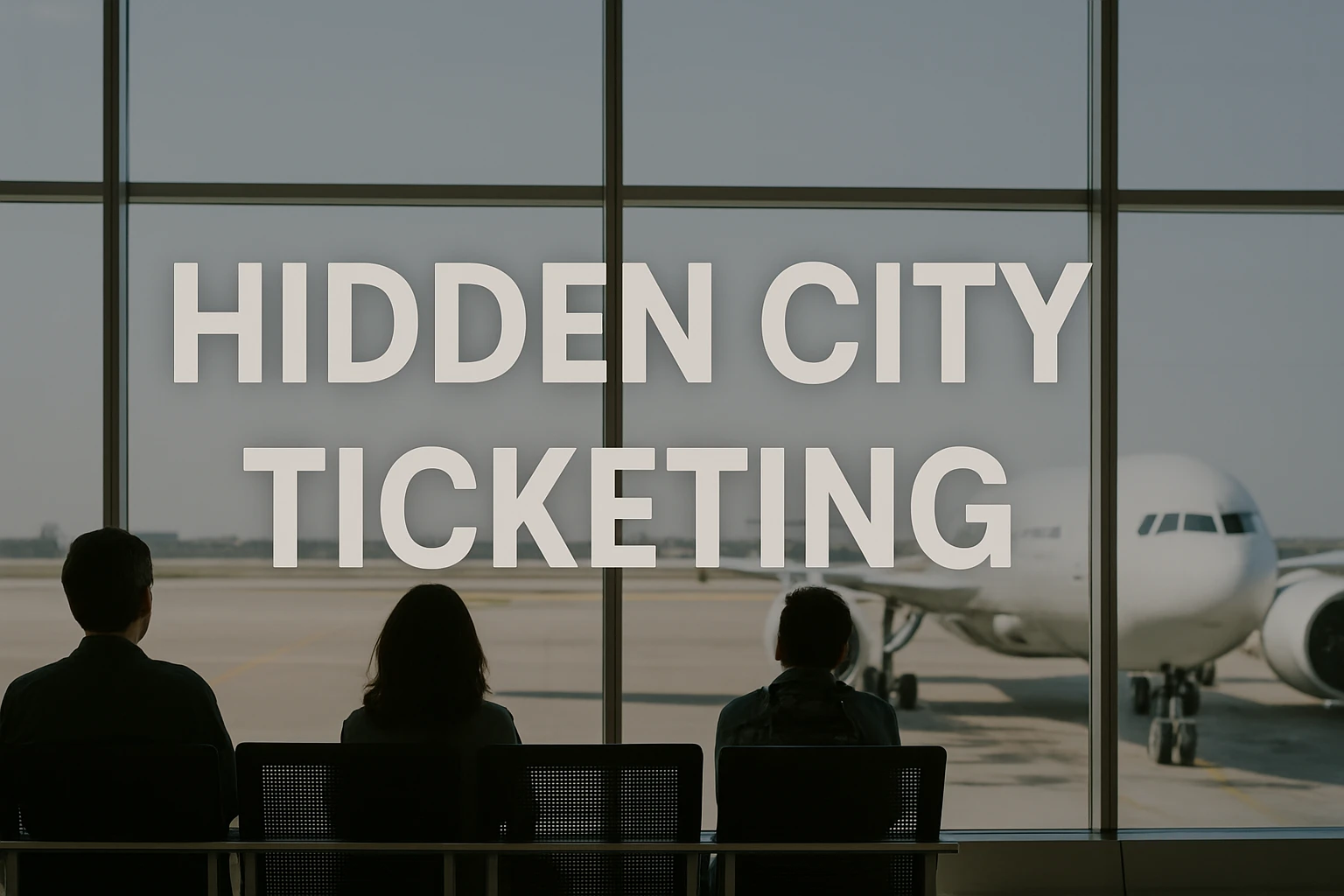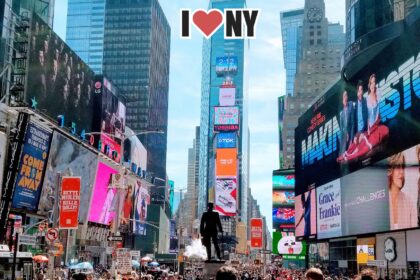In the world of airline travel, few tricks have sparked as much curiosity, and controversy, as hidden city ticketing. As airfare prices continue to climb and travelers grow increasingly savvy, more passengers are discovering this clever loophole that can save hundreds of dollars on flights. But while it may sound like a goldmine of a travel hack, hidden city ticketing comes with risks, restrictions, and ethical gray areas that every traveler should clearly understand.
This in-depth guide explains everything you need to know about hidden city ticketing in 2025, including how it works, when to use it, how to stay under the radar, and why airlines are actively fighting against it.
What Is Hidden City Ticketing
Hidden city ticketing is a travel strategy in which a passenger books a flight with a layover in their actual intended destination, then disembarks at the layover point and skips the final segment of the flight.
Example:
Imagine you want to fly from New York City to Chicago, but the direct flight is expensive. After some searching, you find a flight from New York to Denver that includes a layover in Chicago, and surprisingly, the full New York to Denver ticket is cheaper than the direct flight to Chicago. In this case, with hidden city ticketing, you would book the New York to Denver route and exit the plane in Chicago without continuing on to Denver.
This tactic exploits the way airlines price their tickets, sometimes undervaluing routes with connections through major hub cities.
Why Hidden City Ticketing Works
Airfare pricing is based on more than just mileage. Airlines use complex algorithms that calculate prices based on:
- Market demand
- Competition on specific routes
- Operating costs
- Airport taxes and government fees
- Business traveler patterns
Because of this, longer flights with layovers can occasionally cost less than shorter, more direct ones. This presents an opportunity for travelers who understand how to take advantage of route inefficiencies.
For example, a flight from Los Angeles to Boston might cost more than a Los Angeles to Baltimore flight that includes a layover in Boston, depending on the day, demand, and routing.
Hidden City Ticketing vs Throwaway Ticketing
Although often confused, there is a subtle difference between these two travel hacks:
- Hidden city ticketing involves skipping the last leg of your flight by exiting at a layover city.
- Throwaway ticketing refers to not using a return portion of a round-trip itinerary or missing a middle segment.
In both cases, the traveler is violating the terms of carriage, the legally binding agreement you accept when buying a ticket. Airlines have the right to cancel your itinerary and potentially penalize your loyalty account if they detect this behavior.
When Hidden City Ticketing Makes Sense
There are specific scenarios when hidden city ticketing might be the right call, as long as you proceed cautiously.
One-Way Flights
Hidden city ticketing is best used for one-way travel. Once you skip one segment, the rest of your ticket is cancelled, including any return leg.
No Checked Bags
Checked baggage will be sent to the final destination listed on your ticket. To exit at the layover city, you must fly carry-on only.
Significant Price Difference
When the price gap between a direct flight and a hidden city itinerary is considerable, this tactic can save you $100 to $500 or more.
Major Hub Cities
This strategy works best in cities that are airline hubs, such as Chicago, Atlanta, Dallas, Charlotte, or Denver, where there are lots of connecting flights.
Non-Essential Flights
Avoid using hidden city ticketing for high-stakes trips, such as weddings, interviews, or cruises. If the airline rebooks your itinerary, you might miss your layover city entirely.
When You Should Avoid It
Despite the appeal, there are times when hidden city ticketing is not worth the risk.
Round-Trip Itineraries
Once you miss one segment, the rest of your ticket is voided. That includes your return flight, even if it’s days later.
Traveling with Checked Luggage
Checked bags will be automatically routed to the final destination, not your stopover point, and cannot be retrieved mid-journey.
Using a Frequent Flyer Account
Loyalty accounts are trackable. If you use hidden city ticketing while logged in, you risk losing miles, elite status, or even account suspension.
Flying Internationally
Hidden city ticketing is extremely risky on international flights, where customs, visas, and security screening often make mid-itinerary exits impossible.
Booking Through the Airline
Always book through third-party platforms. Direct airline bookings can lead to faster detection, cancellation, and penalties.
How to Book a Hidden City Ticket Safely
If you decide to try hidden city ticketing, follow these best practices to minimize your exposure.
1. Use the Right Tools
Skiplagged.com is the most well-known site for uncovering hidden city deals. It presents options with the layover city as your actual destination.
2. Don’t Check Bags
Pack light, use a backpack or carry-on roller, and avoid bringing anything that needs to be checked at the gate.
3. Don’t Use Your Real Frequent Flyer Info
Avoid logging in with your loyalty number. Create a separate email or guest booking profile to reduce traceability.
4. Be Discreet
Never tell airline employees that you plan to disembark early. It violates the terms of carriage, and they may cancel your ticket on the spot.
5. Watch for Schedule Changes
If your flight is rerouted or you’re moved to another itinerary, you may no longer stop at your intended layover city. Always have a backup plan.
6. Know Your Airports
Some airports make it easier to exit during layovers than others. Be sure your connecting airport allows passengers to exit without passing through a secured area again.
Airline Penalties and Risks
Hidden city ticketing is not illegal, but it violates airline policies. Here’s what could happen if you’re caught:
- Cancellation of remaining travel segments
- Loss of frequent flyer miles and status
- Ban from the airline’s loyalty program
- Future bookings flagged or denied
- Legal threats, though rare, have occurred
United Airlines famously sued Skiplagged in 2014 for promoting this tactic, though the lawsuit was eventually dropped. That said, airlines continue to pursue violations aggressively.
Hidden City Ticketing Ethics
There’s a debate about whether hidden city ticketing is morally acceptable:
- Proponents argue that it’s simply a smart response to illogical airline pricing structures.
- Critics contend that passengers agree to the terms of their ticket and that circumventing those terms is dishonest.
Ultimately, the decision is personal. Just understand the rules, risks, and consequences before using this method.
Best Airports for Hidden City Opportunities
Travelers have had the most success using hidden city ticketing when flying through these major hub cities:
- Chicago O’Hare (ORD)
- Atlanta Hartsfield (ATL)
- Dallas/Fort Worth (DFW)
- Charlotte Douglas (CLT)
- Denver International (DEN)
- Newark Liberty (EWR)
- Los Angeles International (LAX)
- Houston Intercontinental (IAH)
These airports handle a large volume of connecting traffic, which increases the chances of finding cheaper long-haul routes that pass through your target destination.
Alternatives to Hidden City Ticketing
If hidden city ticketing feels too risky or unethical, here are some other strategies to save money on flights:
- Flexible date searches using Google Flights
- Combining one-way tickets instead of round-trips
- Booking flights on budget carriers
- Using points and miles earned from travel credit cards
- VPN use to check pricing from other countries
- Monitoring price drops with Hopper or Kayak alerts
- Using cash-back travel portals like Rakuten
Each of these methods can deliver substantial savings without violating airline policies.
Conclusion: Is Hidden City Ticketing Worth It in 2025
Hidden city ticketing is a powerful, if controversial, travel strategy. It can unlock deep discounts, especially for one-way domestic flights when you’re traveling light and are comfortable taking a calculated risk.
However, it’s not for everyone. Frequent travelers, those flying internationally, or passengers with loyalty program status should weigh the potential consequences before using this tactic. Airlines are increasingly aware of it and are stepping up their efforts to identify and penalize repeat users.
If you choose to try it, use third-party booking sites, fly carry-on only, avoid frequent flyer accounts, and above all, be discreet. When used sparingly and responsibly, hidden city ticketing can help you stretch your travel budget without breaking any laws, but the risks and rewards must be carefully balanced.
In another related article, The Ultimate Disney World Packing List for 2025







